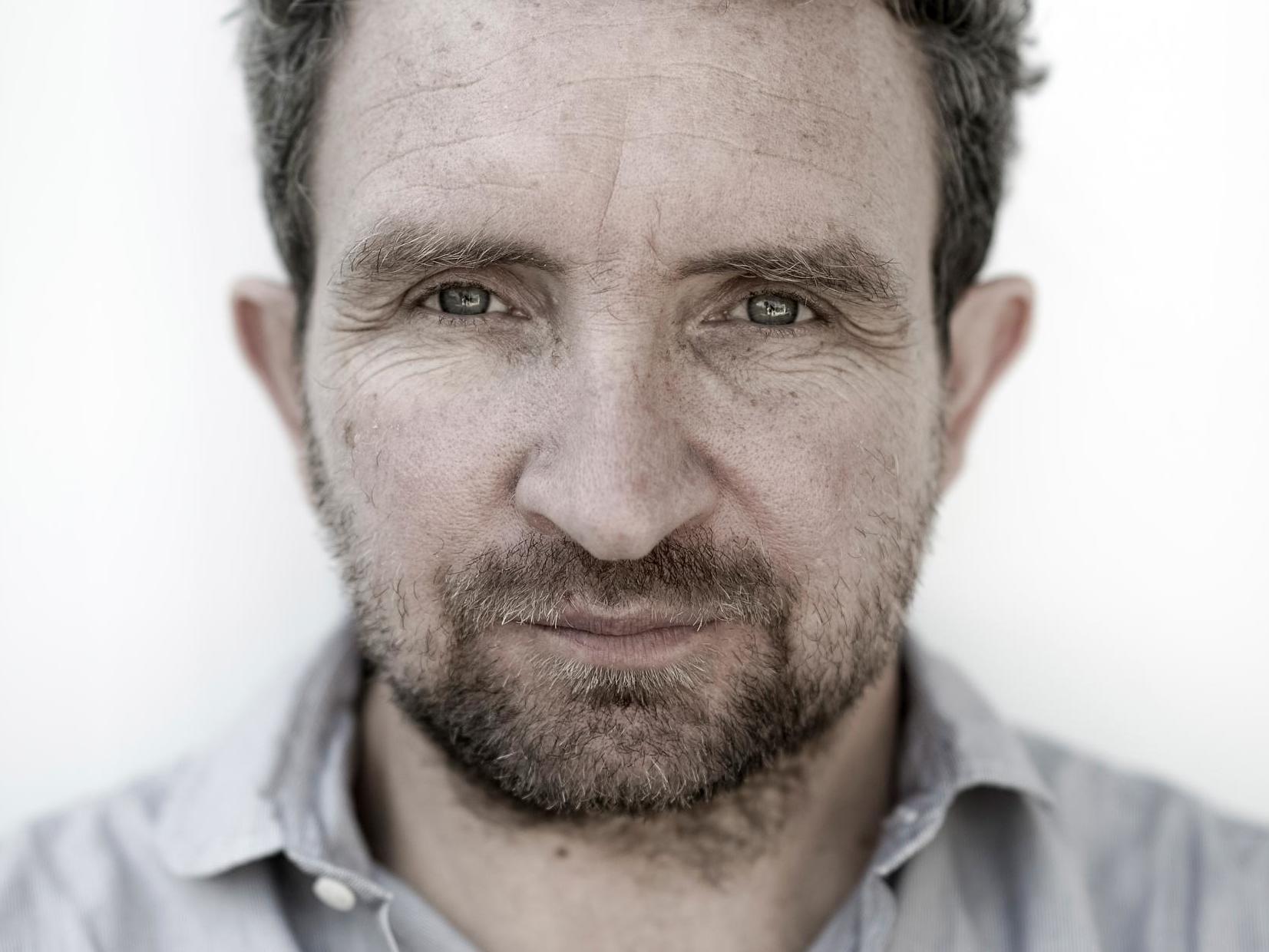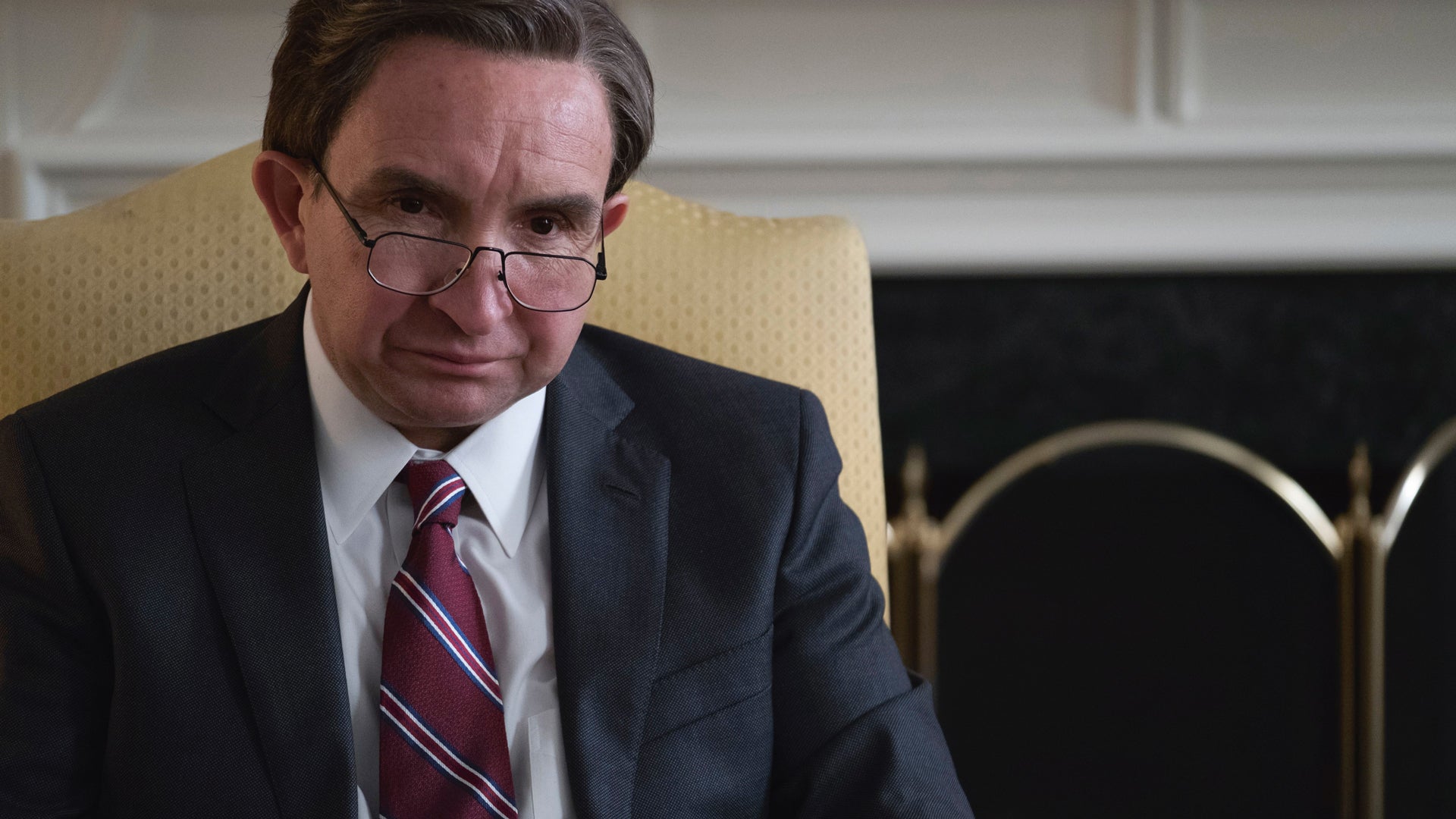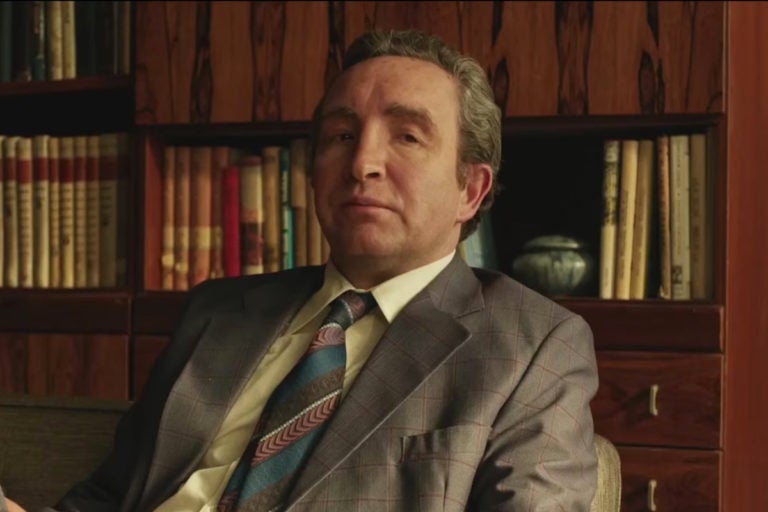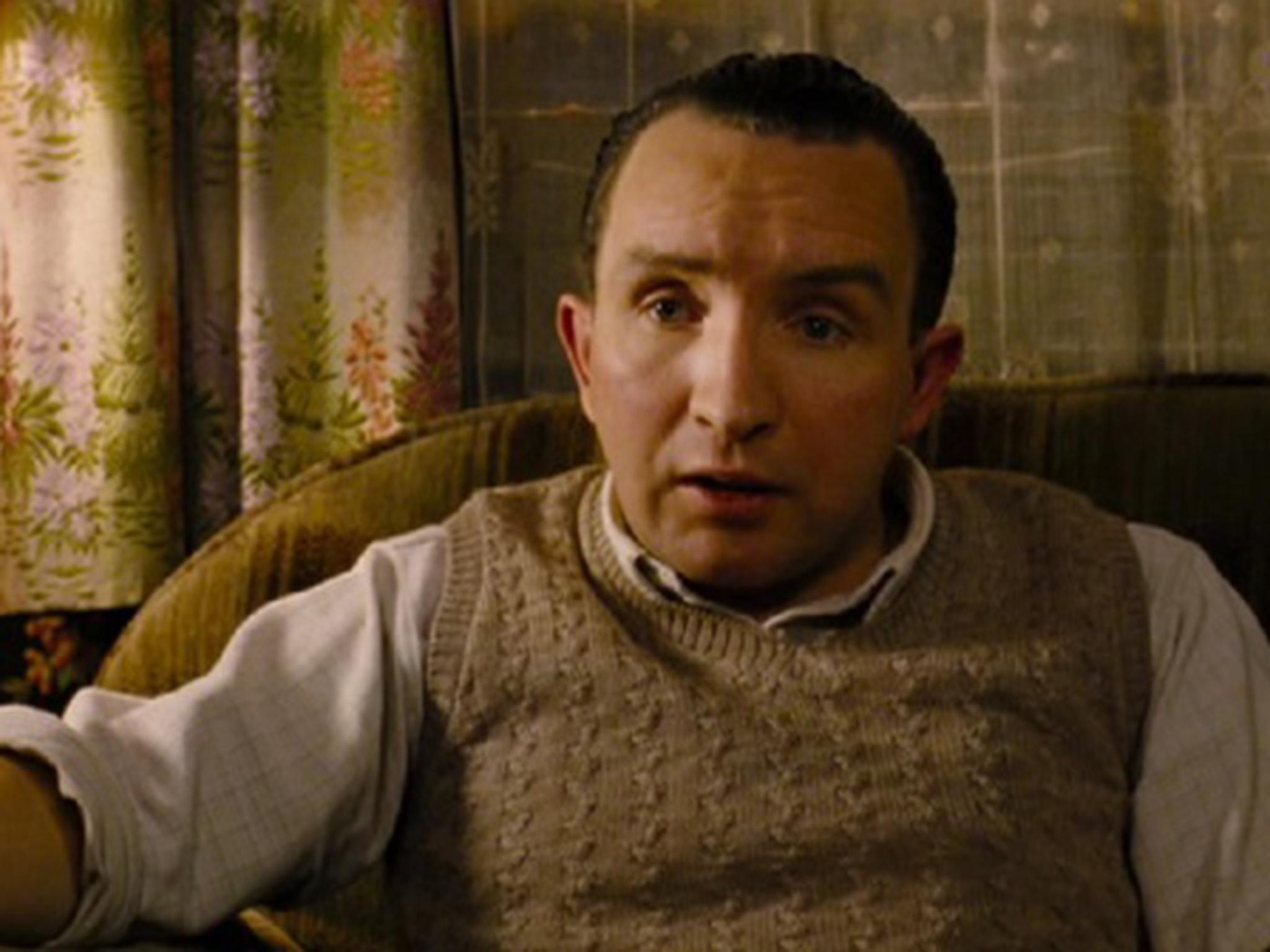Eddie Marsan interview: ‘I watched the vote on May's deal with my son. We were cheering like it was a football match’
The actor is angry about everything from posh actors to Jeremy Corbyn to the way the media panders to the far right. As he takes on the role of one of the architects of the 2003 invasion of Iraq in ‘Vice’, he talks to Ed Cumming


Your support helps us to tell the story
From reproductive rights to climate change to Big Tech, The Independent is on the ground when the story is developing. Whether it's investigating the financials of Elon Musk's pro-Trump PAC or producing our latest documentary, 'The A Word', which shines a light on the American women fighting for reproductive rights, we know how important it is to parse out the facts from the messaging.
At such a critical moment in US history, we need reporters on the ground. Your donation allows us to keep sending journalists to speak to both sides of the story.
The Independent is trusted by Americans across the entire political spectrum. And unlike many other quality news outlets, we choose not to lock Americans out of our reporting and analysis with paywalls. We believe quality journalism should be available to everyone, paid for by those who can afford it.
Your support makes all the difference.
“In the UK I’m not what’s fashionable at the moment, which is good-looking public schoolboys who make a film and then advertise Burberry bomber jackets,” says Eddie Marsan. “I’m not that type.”
That said, this son of a lorry driver and a dinner lady, who grew up on a council estate in Tower Hamlets, east London, is not unstylish. He is wearing a smart grey rollneck sweater and navy pea-coat. It gives the 50-year-old a nautical look as he enters a cafe on Chiswick High Road in west London, rubbing his hands as if he has just come off watch in an Atlantic convoy.
He is compact, somehow neither as short or as tall as you think he might be, and has an even posture, the legacy of an adolescence spent dancing in east London nightclubs. He started acting in his twenties after initially serving an apprenticeship with a printer. The women at the next table recognise him, not as a film star but as a Chiswick neighbour. There are no publicists, no private rooms, no stopwatches. It is all worryingly normal.
It might not be so relaxed if we were in Los Angeles. Professionally, Marsan’s longstanding bugbear has been the difference between the roles he is offered in the US and the UK. In Britain, he is still thought of as a character actor, an “oh him” recognised by face but not name. He established himself in mid-budget indie films like Vera Drake, Happy Go Lucky and This Year’s Love, capped by a startling performance opposite Olivia Colman in Tyrannosaur. Then he got stuck there.
In America, by comparison, his reputation has grown and grown. His latest role is in Vice as Paul Wolfowitz, the political strategist, opposite a menacing Christian Bale as Dick Cheney and Steve Carell as Donald Rumsfeld. In recent years, Marsan has also been in Deadpool, Atomic Blonde and Sherlock Holmes, all well-funded Hollywood blockbusters. Here, almost zilch.
“In my darkest days I can be bitter and say there’s a class conspiracy,” he says, “but then I think that’s a bit of an easy get-out for someone like me.”
A calmer assessment might be that his recent success in America is in large part off the back of his recurring role in Ray Donovan, an Showtime crime drama that has been more successful there than here. Liev Schreiber plays the titular Ray, a Hollywood “fixer”, called on to sort out A-lister mishaps. Marsan plays Donovan’s brother, Terry, a boxing coach from Boston with Parkinson’s. Over seven years the series has grown in complexity and is now heading towards the longevity that will see it repeated forever on other channels. Actors dream of this kind of series, but it comes with commitments. Ray Donovan has taken up six months of each of the past seven years, with more in sight. Marsan must pick his other work carefully.
For Vice, it was the script and the chance to work with Adam McKay, the writer-director whose last film, The Big Short, also put Christian Bale at the centre of tumultuous world events, in that case the financial crisis. Vice applies the same brash techniques, repeatedly breaking the fourth wall, to Cheney’s life and the politics of the Bush era. Wolfowitz was one of the architects of the invasion of Iraq, but Marsan plays him with sensitivity, as a smooth bureaucrat trying to position himself in a world of swirling egos and complex power arrangements.

“The key for me was understanding that Wolfowitz is a Truman Democrat,” he says. “He believes America should be doing a Marshall plan for the Middle East. Like many of my generation I marched against the Iraq war, but I had to put that aside while I was playing him. I’ve played much worse people than Wolfowitz, but I’d never play them one-sided. I think that’s a terrible way to play the character. I spoke to journalists who had written about Cheney and met him, like Johnny Freedland, Nick Cohen, Daniel Finkelstein. You have to try to understand what he was trying to achieve. I don’t like the simplistic narratives that people try to impose.”

Watch Apple TV+ free for 7 days
New subscribers only. £8.99/mo. after free trial. Plan auto-renews until cancelled

Watch Apple TV+ free for 7 days
New subscribers only. £8.99/mo. after free trial. Plan auto-renews until cancelled
It was a matter of time before the conversation turned to politics. Most actors are shy about expressing an opinion one way or the other. With Marsan the opposite is true. You sense that the acting is a job, but he would really rather always be talking about the failings of Jeremy Corbyn’s Labour Party. We meet a few days after Theresa May’s Brexit deal has been shot down in parliament.

“I watched the vote with my son. It was like a football match. We were cheering,” he says, laughing. He has been critical of Jeremy Corbyn’s leadership, using Twitter to express his views and engage with those who disagree. His biography on the site features a quote from the documentary maker Albert Maysles: “Tyranny is the deliberate removal of nuance.”
“I am a lifelong Labour supporter, and I was a member, but I gave that up because of Corbyn,” he says. “I don’t trust him. I think he’s an ideologue. After he came in, anyone who was in the Brown or Blair cabinets was corrupted because they had compromised. Corbyn had done nothing. He made his inactivity as a backbencher a sign of integrity. I don’t buy that. I’ve spent my life listening to out-of-work actors tell me how they would have played a part, and I always think, ‘you weren’t there. You don’t understand the pressures.’”
He sees Brexit as an extension of pressures he saw first-hand as a child. “If you lived in Tower Hamlets in the Seventies and Eighties and you were white working class, you had a choice between going to nightclubs with your black friends and dancing, or joining the National Front,” he says. “Now people are bending over backwards to understand the far right. Fuck that. We used to literally have fights with these people. You can’t reason with them. You have to call them out. When I played Shimon Peres [the Israeli leader Marsan portrayed in Entebbe] I watched an interview he did on primetime American TV in the mid-1970s. I was amazed by the level of discourse and the complexity of the questions. Now they overcompensate to try and create an ‘equilibrium’.”
Marsan was involved in an odd class row last year when he tweeted about his preference for dinner parties over pubs. JK Rowling, Tom Watson, David Baddiel came to his defence. Danny Baker and Owen Jones attacked him. Marsan laughs at the memory. “That was amazing. All I said was I wasn’t a great fan of pubs because when I grew up, closing time in the pub was frightening for lots of kids in the estate. Pubs to me represent stagnation. The amazing thing is [my critics] never consider that the people who come round to my house may be working-class too. It reveals so much about them. It’s like ‘Owen Jones, who the fuck do you think comes to my house? You live in a world where working-class people can only go to pubs.’”

Whatever his background, Marsan now lives a life that is middle-class by anyone’s standards. Are his own four children, with his wife Janine Schneider, a makeup artist, having a different upbringing from his own? “The people I grew up with are still a big part of their lives,” he says. “My wife and I weren’t born into any kind of privilege, so they’re growing up with parents who have a work ethic and a mindset.”
I wonder if this is a narrow view of his advantages. Though he might feel that he is discriminated against in the UK for his background, he is a straight white English actor with Hollywood at his feet. European cinema, too. Marsan might not be Tom Hiddleston, but the range of roles he is offered is at least as diverse. After Vice he will appear in Feedback, about a talk-show radio host whose station is hijacked. “Like James O’Brien meets Die Hard,” he says. Interviews tend to describe him as an “everyman” but it is unfair. His face at rest is not chiselled, exactly, but it is almost perfectly symmetrical and while the default expression can be serious, even menacing, when he laughs it’s like a mirror catching the light. Questions of identity and privilege, and the different forms it takes, are as prominent as ever. At the time of writing, Black Panther has just been nominated for the Best Picture Oscar and Green Book is the subject of a row about race. The #MeToo movement rumbles on. Does he ever think that straight white men ought to take a back seat?
“I don’t think you should ever shut up,” he says. “One of the things to realise is that your whiteness is so superficial. It’s as superficial as your blood type. It’s like saying everyone with B negative ought to shut up. The aim of all this is to get to a stage where we don’t need to address it. God, I sound like Martin Luther King, don’t I?”
As part of his contract with Ray Donovan he flies home every weekend during filming. “My air miles are amazing,” he says. “I’ve almost got a private jet, like Nigel Farage,” he says, a reference to the former Ukip leader’s flight from London to Brussels after the Brexit vote. “I’m knackered all the time, but I run to avoid the jet lag. I try to keep life ordinary so I can focus on my job. My kids are happy here. I always cook a Sunday roast and we have a chat about the week. My beef is amazing. I did a lamb the other day, with the rosemary and the garlic. It was marvellous. You’ll have to come round. Come to my dinner party!”
Vice is out in UK cinemas
Join our commenting forum
Join thought-provoking conversations, follow other Independent readers and see their replies
Comments